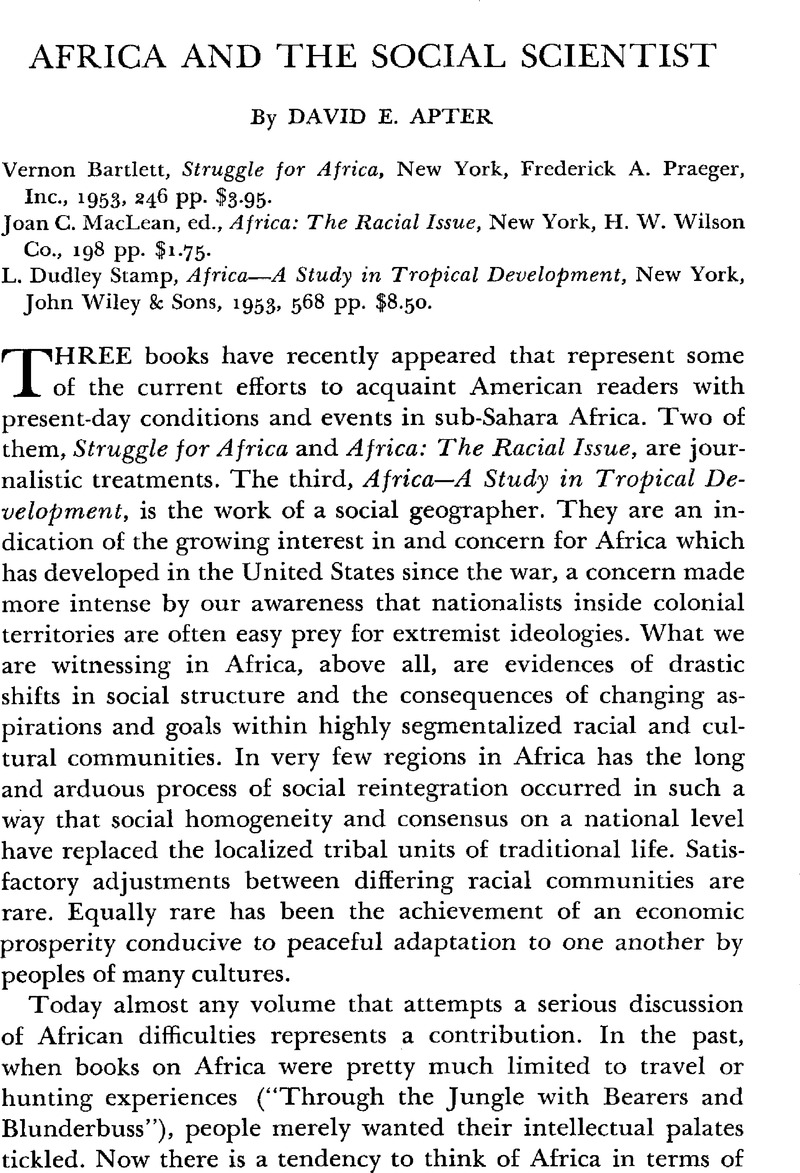No CrossRef data available.
Published online by Cambridge University Press: 18 July 2011

1 A major error of many observers of African problems lies in the assumption that tribal peoples are like children, to be taken by the hand and led into more “elaborate” and “mature” patterns of social activity. One must remember that Africans have developed extremely complex societies, and that they are adept at meeting the hardships of the tropical and often hostile environment. The instrumental value of their own cultures has been demonstrated to them, and their response to new ways is therefore often one of reluctance and hesitation.